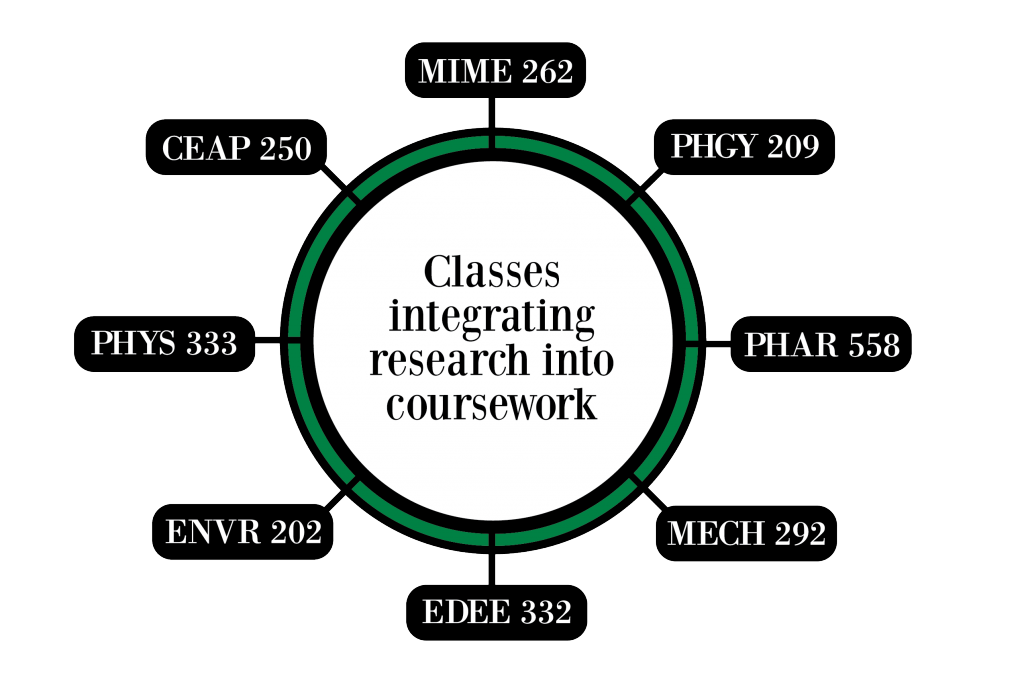Terry Hébert, professor of Pharmacology at McGill raised a question to the McGill Senate last Wednesday regarding the incorporation of research into undergraduate teaching. The question was posed to follow up on a discussion at the November 2014 Senate meeting about the logistical challenges of providing every undergraduate student with a research opportunity. Hébert spoke as a member of the Inquiry Network, a cross-disciplinary group under McGill Teaching and Learning Services dedicated to engaging undergraduate students with the processes of research in coursework.
Since its inception in 2009, the Inquiry Network has been meeting monthly to achieve this goal. It has implemented measures including a faculty workshop on research pedagogy and making recommendations to the 2011 Joint Board-Senate Meeting on how to enhance undergraduate research.
In response to Hébert’s question at Senate, Provost Anthony Masi and Deputy Provost (Student Life and Learning) Ollivier Dyens said the university has proposed a four-fold approach to helping students think like researchers as part of their coursework. This included the clarification of university policies and guidelines to emphasize the teaching-research nexus as an integral part of a professor’s academic duties, rather than an additional task, as well as the implementation of a five-year plan for Teaching and Learning Services, McGill’s office dedicated to improving teaching.
McGill currently offers research opportunities through the Office for Undergraduate Research in Science (OURS), Summer Undergraduate Research in Engineering (SURE), and the Undergraduate Arts Research Internships Awards (ARIA).
ARIA recipient Caroline Boreham, U3 Arts, worked with Professor Tabitha Sparks on a proposal for a scholarly edition of a late 19th century novel.
“I loved the experience of working in a library day in and day out—I especially appreciated having the time to explore all of our resources at McGill,” said Boreham.
While these projects are a valuable opportunity for enrichment, they are usually limited to a select few students and last only a few months, according to Marcy Slapcoff, educational developer at Teaching and Learning Services. Boreham also cited difficulty in acquiring funding from a professor the first year she applied for the program, saying that one obstacle to conducting research is finding professors who can guarantee funding for a student project before their own grants are confirmed.
Slapcoff also explained why the integration of research into curricula is an important complementary measure to projects like ARIA and SURE.
“The reason we […] have focused our efforts on coursework is that it is the only mechanism for [offering research opportunities to] all students throughout their degrees,” she said. “Undergraduates may not all be able to do original research, but they can all learn to think and act like researchers—to ask questions, to make decisions based on critically examined evidence, to share results, and to take action as engaged citizens.”
Dean of Students André Costopoulos also emphasized the importance of undergraduate research at McGill.
“It’s part of our teaching mission,” Costopoulos said. “Undergraduates can not only benefit from research, but also contribute to it. We all bring a different perspective to a research problem, whether we’re looking at it for the first time as an undergraduate in a lab, or with a professor in the library, or whether we’ve been thinking about it for 20 years.”
Hébert said that research can inspire genuine excitement and has benefits beyond those offered by traditional teaching methods.
“Facts are generally provisional, and they change,” Hébert said. “[It’s] better to learn to evaluate facts critically and to learn to think independently. Our obsession with memorizing facts that are easily forgotten does a disservice to students, even if they don’t see that right away.”








